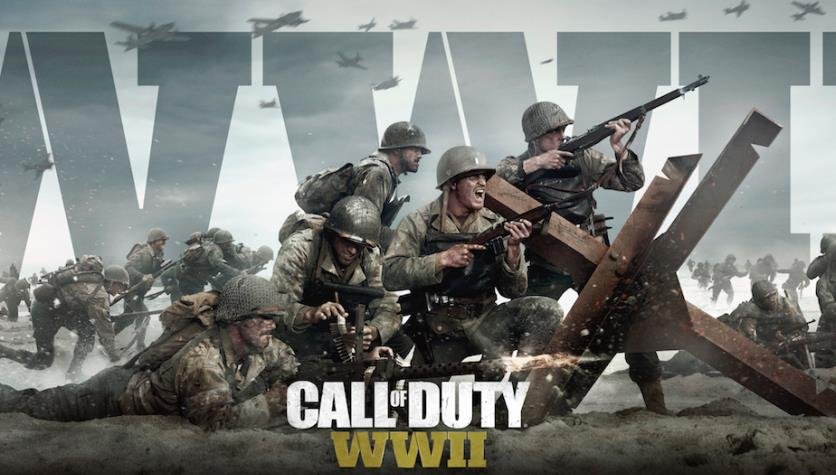The popular video game franchise Call of Duty is marking its 20th anniversary this year with a new installment that revives its original and controversial tagline: “There’s a soldier in all of us”. The slogan, which was first used in 2010 for Call of Duty: Black Ops, has been criticized for glorifying war and violence, and for trivializing the experiences of real soldiers.
A nostalgic tribute or a tone-deaf move?
Activision, the publisher of Call of Duty, announced the new game, titled Call of Duty: Vanguard, on Thursday, October 19, 2023. The game is set in World War II and features four playable characters from different Allied forces. The game promises to deliver “a gripping and immersive campaign, a select group of soldiers from different countries rise to meet the world’s gravest threat” .

The announcement was accompanied by a teaser trailer that showed various scenes of combat and destruction, along with the voice-over saying “There’s a soldier in all of us”. The trailer ended with the logo of the game and the release date: November 10, 2023.
The tagline, which was also used for Call of Duty: Modern Warfare 3 in 2011, has been widely seen as a marketing strategy to appeal to a broad audience of gamers, regardless of their age, gender, or background. The idea is that anyone can be a hero and enjoy the thrill of war in a virtual setting.
However, the tagline has also been met with backlash from critics and activists who argue that it is insensitive and irresponsible to portray war as a fun and exciting adventure. They claim that the tagline ignores the harsh realities and consequences of war, such as death, injury, trauma, and displacement. They also point out that the tagline exploits the image and sacrifice of real soldiers who have fought and died in wars.
A history of controversy
Call of Duty is not new to controversy. The franchise, which was launched in 2003, has been accused of promoting militarism, nationalism, racism, sexism, and propaganda in its games. Some of the most controversial moments in the series include:
- The “No Russian” mission in Call of Duty: Modern Warfare 2 (2009), where the player participates in a massacre of civilians at an airport in Moscow.
- The depiction of Fidel Castro as a villain in Call of Duty: Black Ops (2010), which led to Cuba denouncing the game as “perverse”.
- The use of real historical figures and events in Call of Duty: Black Ops II (2012), such as Manuel Noriega, Oliver North, and the Iran-Contra affair.
- The portrayal of Pakistan as a failed state and a haven for terrorists in Call of Duty: Modern Warfare (2019), which led to Pakistan banning the game.
- The inclusion of loot boxes and microtransactions in Call of Duty games, which have been criticized as predatory and gambling-like practices.
A loyal fan base
Despite the controversies, Call of Duty remains one of the most successful and popular video game franchises in history. According to Activision, the series has sold over 400 million copies worldwide and has generated over $27 billion in revenue . The games have also won numerous awards and accolades from critics and fans alike.
The fan base of Call of Duty is diverse and loyal, ranging from casual gamers to hardcore enthusiasts. Many fans appreciate the games for their high-quality graphics, sound effects, gameplay mechanics, storylines, characters, and multiplayer modes. Some fans also enjoy the games for their historical accuracy and realism, as they feature authentic weapons, vehicles, locations, and events from various wars.
The fans have also created a vibrant community around the games, where they share their experiences, opinions, tips, strategies, fan art, fan fiction, memes, videos, podcasts, and more. Some fans have even formed clans and teams to compete with each other online or in tournaments.
A future challenge
As Call of Duty prepares to celebrate its 20th anniversary with a new game that pays homage to its origins, it also faces a challenge to maintain its relevance and appeal in a changing gaming industry. The industry is becoming more diverse and inclusive, with more games featuring female protagonists, LGBTQ+ characters, people of color, and different cultures. The industry is also becoming more socially conscious and responsible, with more games addressing issues such as climate change, mental health, human rights, and social justice.
Call of Duty will have to adapt to these changes and expectations if it wants to continue its success and legacy. It will have to balance its tradition of delivering action-packed and adrenaline-fueled games with its responsibility of being respectful and ethical towards its subjects and audiences. It will have to find a way to tell compelling and meaningful stories that do not glorify war and violence, but rather acknowledge and honor the complexity and diversity of human experiences.
